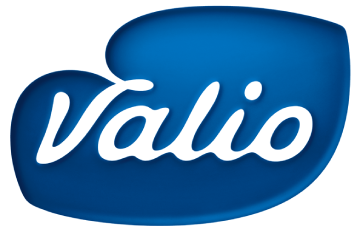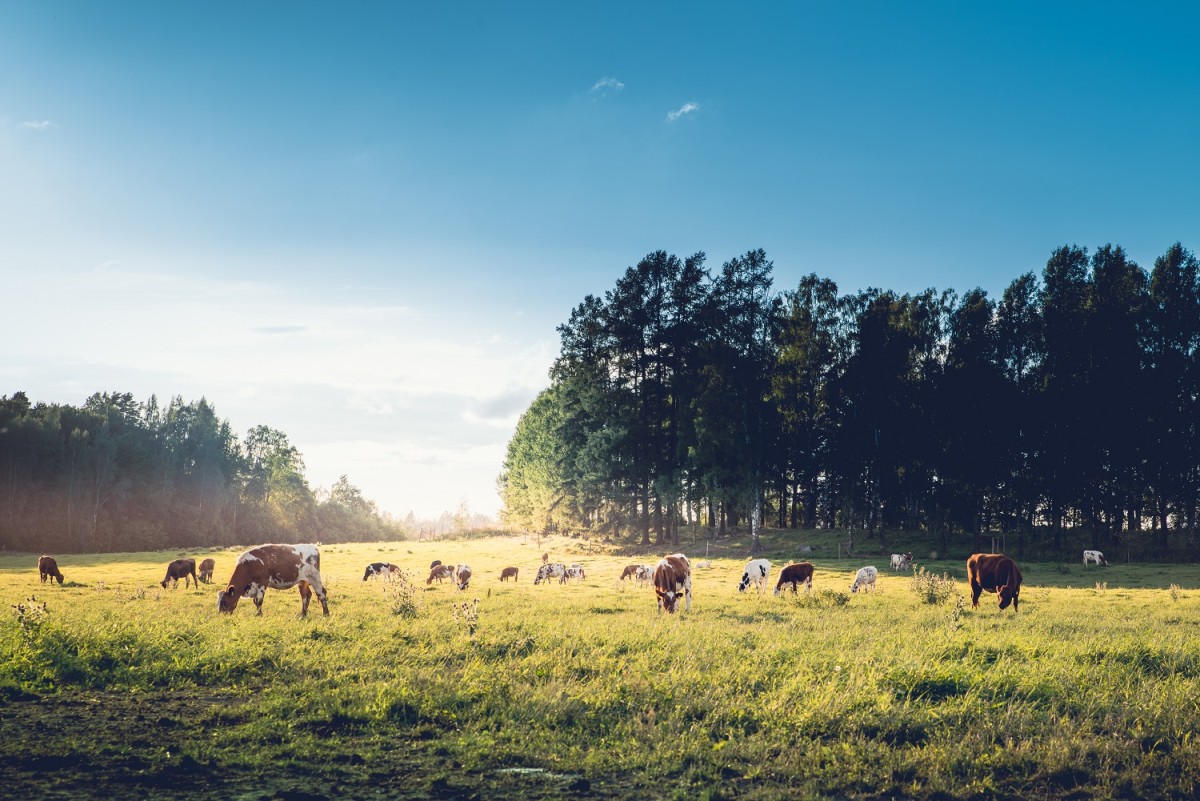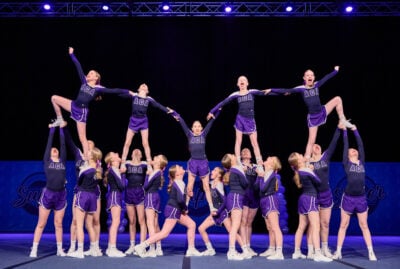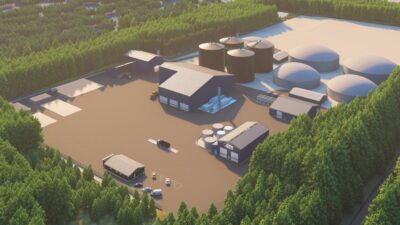Finnish farms and agriculture sector players have worked for several decades to make the use of phosphorus and nitrogen fertilizers more efficient, while also preventing potential eutrophication caused by runoff into waterways. With the new manure process patented by Valio, nutrients can be recirculated more efficiently. At the same time Valio wants to create a manure ecosystem, i.e. a network in which the different players together pursue local and centralized solutions for manure processing. If successful, the network’s impacts on the environment would be significant.
Every year production animals in Finland generate about 20 million tons of manure; the nutrients contained in the manure are underutilized. Valio is the first in the world to patent a process in 2017 to produce clean water and phosphorus and nitrogen fertilizer fractions from liquid manure. The benefits are many: the use of liquid manure as a fertilizer would become easier, nutrient cycling would become more efficient, and nutrient runoff would decrease significantly. Now Valio wants to invite farms, technology players, gas and nutrient sector companies, researchers, investors and authorities to join in the manure ecosystem.
“As a responsible milk processor, we want to find new solutions to efficiently return nitrogen and phosphorus to the nutrient cycle. Collaboration is the only way to achieve the government’s circular economy target: by 2025, 50 percent of farm-based manure must be processed. An ecosystem involving many kinds of players and expertise is needed alongside the technology solution developed by Valio. The network would surely find also new, decentralized solutions for processing manure. Geographically, Finland is long and wide, so that’s why decentralized solutions would enable more a sustainable implementation platform. If realized, a manure ecosystem would have significant environmental impacts,” says Juha Nousiainen, Director of Farm Services at Valio.
The most important elements for milk production are a good grass harvest and the feed made from it, and cows that convert grass feed into food. However, there are also challenges associated with feed production:
“In its current form, liquid manure is both a useful fertilizer and a problem. It is problematic because the storing and spreading of the watery manure requires a lot of storage and arable land area, and as the number of cows increases it may be difficult to find enough acreage to spread the liquid manure. Additionally, the nutrient content of liquid manure is quite low, and the utilization rate of nitrogen, in particular, is low. There are also significant costs involved with spreading, and the heavy equipment used burdens and compresses the fields. Better circulation is also needed because the world’s phosphorus resources are limited,” Nousiainen explains.
The process developed by Valio produces clean water as well as organic phosphorus and nitrogen fertilizer fractions that are easy to spread on the ground. Biogas production from the dry fractions of manure and other milk chain effluents can also be integrated into the process. The biogas generated in the process can be utilized as transport fuel, for example. The process differs from the separation methods currently in use in that a large portion of the water is removed from the manure fractions and the energy contained in the manure can be utilized as biogas. In the phosphorus separation process, Valio utilizes its expertise in the processing of milk components.
“Valio Group’s 5,500 dairy farms already have good examples of utilizing manure locally. For example, dairy farmer entrepreneur Heikki Junttila from Nivala, Western Finland, has produced biogas at the Heusala farm since the turn of the century. This is a great example of a dairy farm’s own environmental work. Now we are inviting all interested players to join in the manure ecosystem,” Nousiainen concludes.




